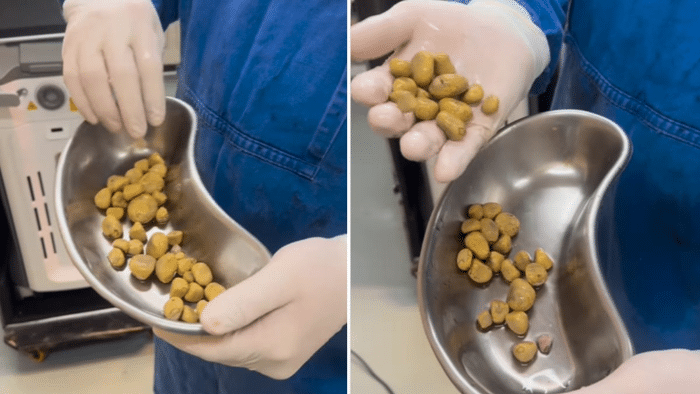Here’s one fact to put a smile on the face of dog lovers everywhere: thanks to modern medicine and science, man’s best friends are now living longer than ever. But there’s someone else to thank: you. You’re now treating your four-legged friends to the best nutrition and veterinary care available. After all, you can’t leave your dog to plan his own meals.
Featured Image VIA
Hip and Joint Supplements
You likely have a self-care routine, and you may also be looking into how you can support the health of your dog beyond providing him with gourmet food. If you’re considering a supplement for your dog’s hips and joints, you aren’t the only one.
Research from market research company Package Facts revealed that one in three of all households with dogs in the U.S. use pet supplements. The most popular supplements are for joint health. They’ve even been referred to as The National Animal Supplement Council (NASC) as a natural and safe method of potentially enhancing a pet’s quality of life. Using something that improves your dog’s life in a natural and safe way sounds pretty great, right?
As larger breeds of dogs might feel symptoms of dysplasia and arthritis earlier than others, the NASC advises pet owners to start their pets on supplements early. If your dog has yet to develop these problems, think about taking him to your bet before he reaches his advanced years.
The Hip Bone
There’s a good reason why joint health supplements are the most commonly purchased supplements for dogs. Research revealed that close to one in five dogs over one years old, and four in five dogs eight years or over experience achy, stiff joints of arthritis. As a dog ages, the fluids and cartilage protecting their bones break down, which leads to pain, inflammation, and irritation.
Your dog might bounce around like a puppy, but you may still find that he has problems with his joints. While there may only be subtle signs, there may be more significant ones, such as refusing to climb the stairs, not wanting to go to the park, or enjoying shorter walks than usual.
Some symptoms may be a natural part of growth and aging. That doesn’t mean they should be ignored, however. And if you’re concerned about the health of your dog, you should take him to a vet.
Degenerative Joint Disease (DJD) or osteoarthritis is a type of arthritis that’s the most commonly experienced in dogs. It’s primarily observed in larger breeds of dogs, although even small ones can experience if too.
Another major source of hip and joint pain in dogs is hip dysplasia. This genetic trait, which can be discovered by x-ray, affects the hip socket’s depth. When a dog experiences this from birth, the femur bone rubbing against the shallow hip socket leads to arthritis.
Your Dog’s Weight
While you might enjoy rubbing your dog’s belly, a chubby one places stress on his limbs and body. Dysplasia, arthritis, and other joint diseases are often exacerbated by a weight problem.
Research has shown that fat within the abdominal cavity results in inflammatory chemicals. This affects all body systems, particularly the joints. Even the thinnest of dogs could experience a degenerative disease. Some of this is due to breed and genetics, but at other times, it’s bad luck.
Choosing Your Dog’s Supplements
When it comes to choosing which pet supplements to give to your furry friend, you might find it overwhelming, as there are so many brands out there. So deciding which one to buy can be a tough task.
When looking for which supplement to buy, you should look for ingredients such as omega-3 EPA & DHA from fish oil, green-lipped mussel, chondroitin, and glucosamine. These ingredients promote joint health, help support your joints and connective tissues structural integrity, and help ease stiffness of the joints from regular daily activity and exercise. Glucosamine for dogs helps to maintain synovial fluid that lubricates the joints. It can also stimulate proteoglycan production. Proteoglycan helps to maintain the resiliency and health of connective tissues and joints.
Wrap Up
When it comes to a dog experiencing problems with their hips and joints, there’s no magic cure. The right mix of multifunctional ingredients to support their hips and joints could maintain their energy levels. You might need to help your dog up and down the stairs, but, with a bit of luck, he’ll be entertaining his social media followers for some time yet.















